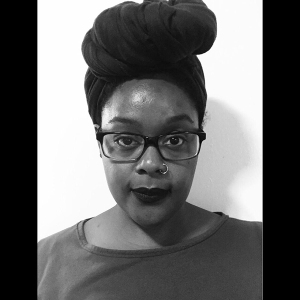by Erica Hughes
‘Twas mercy brought me from my pagan land,
Taught my benighted soul to understand
That there’s a God, that there’s a Savior:
Once I redemption neither sought nor knew.
Some view our sable race with scornful eye,
“Their color is a diabolic dye.”
Remember, Christians, Negroes, black as Cain,
May be refin’d, and join th’ angelic train.
–Phillis Wheatley, “On Being Brought from Africa to America”
I was visiting my mother’s house when I stumbled across a thin book titled African American Poetry: An Anthology, 1773-1927. I was excited by the find, and I quickly slipped the book underneath my armpit and skipped to the backroom to feast on my newly found delicacies. That day, I was particularly excited by the find because I’ve recently begun writing a poetry manuscript; so, I was hoping to learn from this book, a choir of historic black voices.
As I went to sit on my mother’s futon next to a pile of my other books, the voices of Langston Hughes, Toni Morrison, Gwendolyn Brooks, Zora Neale Hurston, James Baldwin, W.E. B. Du Bois slushed around in my head. In this thin anthology, I was anticipating black poets lyrically embracing, expressing, and warring against the blackness that was forced on them, much like the black poets and writers of the late 19th century and of the 20th century. Instead, I opened an anthology full of grief and weeping.
Flipping through the anthology, I stumbled upon titles like “Wish for an Overcoat,” “Not a Man, And Yet a Man,” “Sympathy” and “To the White People of America.” But one poem caught my eye in particular—Phillis Wheatley’s “On Being Brought from Africa to America.” On the first page of this anthology and in the first line of this poem, the first Black American woman poet writes “Twas mercy brought me from my pagan land.” I was devastated by what I had found. I quickly thought, Really? Really? It was a merciful to be ripped from your family and monstrously enslaved? Was God not big and sovereign enough to redeem West African peoples in the eighteenth century without the sin slavery?
*****
Once I heard a similar claim as Wheatley’s spill from the mouth of a white person whom I love: “You wouldn’t know Christ if slavery hadn’t happened.” I didn’t respond to the claim. I just thought about my merciful Savior, how he bore me and my salvation in his body on tree, how he loves those who look to him for salvation. This person’s train of logic didn’t compute with my understanding of the all loving and supremely just God whom I’ve come to call Father.
Although I respect and revere the work of Wheatley, I disagree with the first line of her poem: It was not a mercy of God to be enslaved. Instead, God during the 18th century was busily restoring the things broken by African slavery in the Americas—redeeming a heinous sin.
Still, even now as a 21st-century Black American woman poet and writer, I’m still fighting off these perspectives that seem to seep into and vine themselves around my soul—notions that suggest my black skin is somehow alien to both humanity and God and is deserving of hostility.
Throughout the course of the last three years, I’ve experienced great amounts of racial and misogynistic hostility, both intentionally and subliminally by strangers and by people whom I know and love. Just a few days ago, on a particularly rough Monday, I ran into my friend Christina, who, after listening to my stories about the plights of being a black writer writing for a white evangelical audience, said to me “Lord! That’s why we need a decolonized Jesus!”
Contemplating both Christina’s statement and Wheatley’s poem, I’m reminded of the importance of revering Christ in both his divine nature and in his ethnically Jewish heritage—apart from western Christianity. As a black woman living in America, I find it easy to forget my own value—to forget that I too, like the rest of humanity, am worthy of good and healthy love, that racism and sexism were never a part of God’s initial creation, that I’m created in the image of God too.
For the last couple days, I’ve wondered what would Wheatley have done with a Christian doctrine that valued her body during a time that was littered with dead black bodies, how it would have influenced her poetry, how would she have impacted me, a twenty-four-year-old black woman trying to love Jesus through writing.
Wheatley’s “On Being Brought from Africa to America” is not all bad. At the end of her poem she writes, “Remember, Christians, Negroes, black as Cain,/ May be refin’d, and join th’ angelic train.” Juxtaposed against a history and grief and hostility, these lines remind me that when the divine Middle Eastern Messiah bore me in his body, he bore my soul, my black skin, and my vagina. Because in the beginning, God called these parts of me good.
Erica Hughes, an alumnus of Dordt College, is working toward her MFA in Creative Writing, Poetry at California State University, Fresno and teaches freshmen composition there as well. More importantly, Erica like reads too much for her own good.

